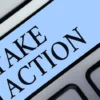
There’s one word that still divides opinions in any money conversation: debt.
For some, it represents opportunity. For others, it’s a red flag. Yet in 2025, almost no one can live entirely without it.
The real challenge isn’t avoiding debt — it’s learning how to use it wisely. Because while some people fear it, others are using it as a tool for growth, stability, and freedom.
- The Price of Financial Fear
For decades, personal finance advice revolved around one simple rule: “If you’re in debt, you’re doing something wrong.”
That mindset worked in a world where inflation was predictable and wages kept pace with costs. But that world is gone.
Today, fear-driven decisions often cost people more than interest ever could. Homeowners stick to high payments because they’re afraid to refinance. Families avoid restructuring their loans even when rates drop. And countless Canadians let anxiety — not logic — dictate their next move.
Fear disguised as caution may feel safe, but it quietly erodes progress. Doing nothing has a cost, too — and sometimes, it’s the highest one.
- Not All Debt Is Created Equal
Treating all debt as bad is like treating all spending as reckless.
There’s toxic debt, born from impulse, and strategic debt, born from purpose.
Debt becomes a problem when it’s emotional, disorganized, or hidden behind habits you don’t question. But when it’s planned, measured, and aligned with your goals, it can actually work for you.
The goal isn’t to owe nothing. It’s to owe with intention — to know why, to whom, and for how long. That’s what separates financial pressure from financial strategy.
- Taking Control of the System
Using debt wisely isn’t about “living on credit.” It’s about taking control of the system before it controls you. Our modern economy runs on leverage — governments, corporations, even successful investors use it strategically.
The difference is purpose:
some use debt to consume, others use it to create flexibility and power of choice.
When you refinance your mortgage to lower your rate, you’re not “adding more debt” — you’re reducing the cost of the money you already owe.
When you restructure your payments to improve cash flow, you’re building breathing room for the future. That’s not risk — that’s planning.
Debt stops being a burden when it becomes coherent with your overall strategy, not just a reaction to circumstances.
- Redefining Financial Power
We were taught that financial success means “owing nothing to anyone.”
But real freedom doesn’t come from zero debt — it comes from knowing how to manage debt with confidence and clarity.
In today’s environment of rising prices and fluctuating interest rates, rigidity can be riskier than debt itself. Money that stays idle loses value. Opportunities ignored don’t come back.
The strongest borrowers in 2025 aren’t the ones who avoid debt at all costs — they’re the ones who understand it. They know when to refinance. They know when a consolidation makes sense.
They know when liquidity can buy them time, peace of mind, or leverage for the next step.
That’s not recklessness — that’s control.
- From Enemy to Ally
Debt can be a trap or a tool — it depends on the intention behind it. To make it work for you, three things matter most:
- Purpose – Every debt should have a clear reason to exist.
- Context – You need to understand its cost, its terms, and your alternatives.
- Strategy – Use it to build options, not obligations.
When those three align, debt stops being a weight and becomes part of your plan.
It stops draining your confidence and starts reinforcing it.
- What We Believe at UCC Mortgage Co.
At UCC Mortgage Co., we believe debt shouldn’t be a source of shame — it should be understood, managed, and optimized.
Our role is to help clients review their full financial picture, compare structures, and identify smarter ways to move forward.
From mortgage refinancing to equity access and debt restructuring, we focus on turning fear-based choices into intentional financial decisions that align with your life goals.
Because when your money has a purpose, your debt does too — and that’s when you truly begin to move forward.
Final Thought:
Being afraid of debt often comes from not trusting your own ability to decide. But financial strength doesn’t come from avoiding decisions — it comes from understanding them.








